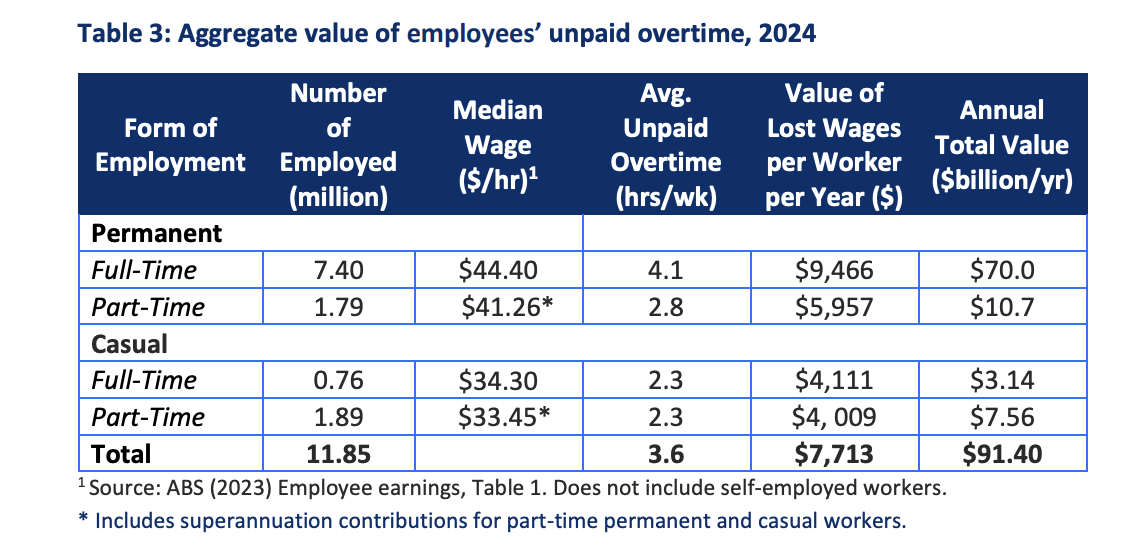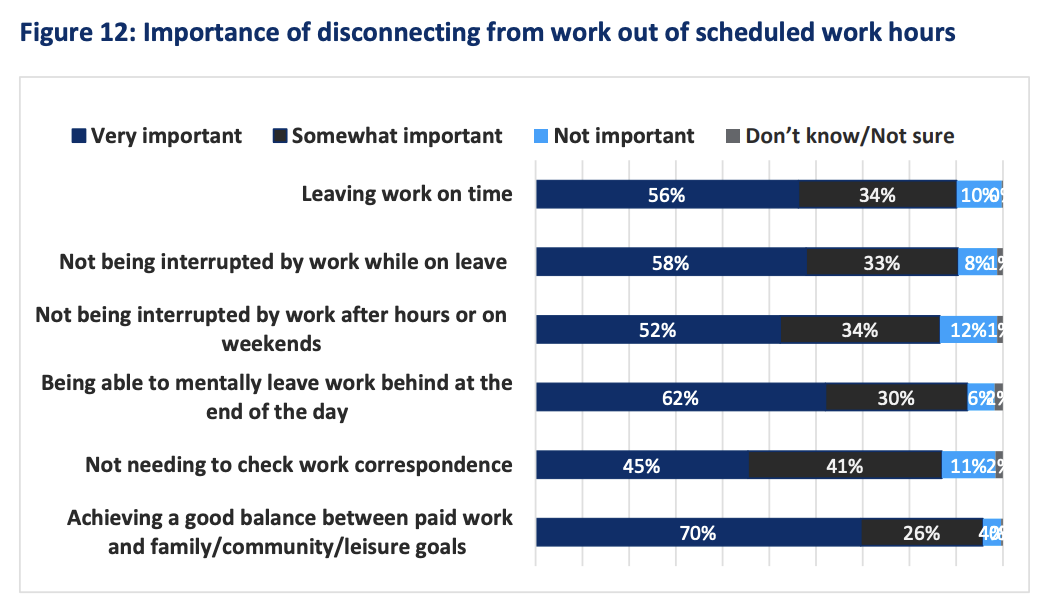
New research also reveals Australians want to disconnect from work

Unpaid overtime in Australia went down by 33% weekly after the government introduced the right to disconnect laws, according to a new analysis.
Data from the Centre for Future Work revealed that unpaid overtime fell from 5.4 to 3.6 hours per week.
Younger Australians aged between 18 and 29 years old saw a 40% reduction in weekly unpaid workload since the right to disconnect was 
"While it is early days, these laws could already be having a positive impact including through raised awareness that workers should be free to enjoy their personal time without work demands," read the report, which was released in November 2024.
"Our research indicates that unpaid overtime hours were fewer in 2024 than in previous years, both pre- and post-COVID pandemic years."
Overall, the financial impact of unpaid overtime despite its decline in 2024 remains massive.
According to the Centre for Future Work analysis, unpaid overtime almost equated to 188 hours per year per worker, which is equivalent to losing $7,713 annually.

"At the economy-wide level, this equates to more than $91 billion of lost income per year," the report read.
The Australian Council of Trade Unions cited the benefits of the right to disconnect in cutting unpaid overtime in defending the laws, which Opposition Leader Peter Dutton threatened to repeal if they win the election.
"Peter Dutton has promised to take away people's right to disconnect if he is elected, which will result in a pay cut for many workers and give the green light to bad employers to normalise free work from Australians as an expectation of the job," said ACTU Secretary Sally McManus in a statement.
Australia's right to disconnect permits employees to refuse out-of-hours contact from their employer unless that refusal is unreasonable.
According to McManus, taking away the right to disconnect can cost an average worker more than 100 minutes in extra unpaid work a week.
"You don't help people with the cost-of-living by cutting their overtime pay and making them work for free," the ACTU secretary said.
Taking away the right to disconnect also risks undermining employees' desire for unplugging from work.
The centre's findings revealed that more than half of Australians consider leaving work on time (56%) and not being interrupted by work after hours or on weekends as very important (52%).

"Our survey results show that being able to disconnect from work outside of scheduled work hours is very important to workers," the report read.
"Being able to leave work on time and not be interrupted after the end of the scheduled work day, on the weekend, and when on leave were each reported as being either very or somewhat important by around nine out of ten survey respondents."